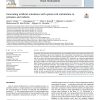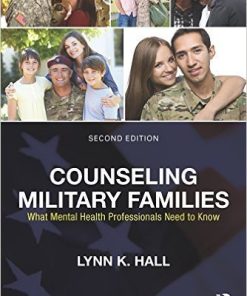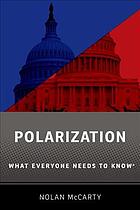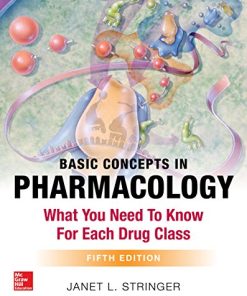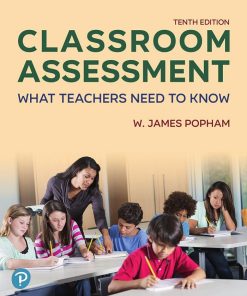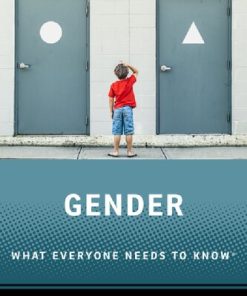(EBOOK PDF)The Musical Brain What Students Teachers and Performers Need to Know 1st edition by Lois Svard 9780197584194 0197584195 full chapters
$50.00 Original price was: $50.00.$25.00Current price is: $25.00.
The Musical Brain What Students Teachers and Performers Need to Know 1st edition by Lois Svard – Ebook PDF Instant Download/Delivery: 9780197584194, 0197584195
Full download The Musical Brain What Students Teachers and Performers Need to Know 1st edition after payment
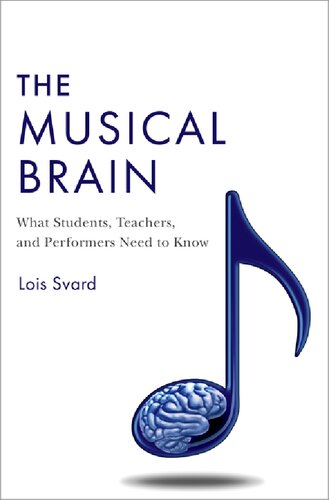
Product details:
• ISBN 10:0197584195
• ISBN 13:9780197584194
• Author: Lois Svard
The Musical Brain
What Students, Teachers, and Performers Need to Know
We make or listen to music for the powerful effect it has on our emotions, and we can’t imagine our lives without music. Yet we tend to know nothing about the intricate networks that neurons create throughout our brains to make music possible. The Musical Brain explores fascinating discoveries about the brain and music, often told through the stories of musicians whose lives have been impacted by the extraordinary ability of our brains to learn and adapt. Neuroscientists have been studying musicians and the process of making music since the early 1990s and have discovered a staggering amount of information about how the brain processes music. There have been many books discussing neuroscience and music, but this is the first to relate the research in a practical way to those individuals who make or teach music. Research in mirror neurons, neuroplasticity, imagery, learning and memory, the musical abilities of babies, and the cognitive advantage of studying music can offer valuable insights into how and when we should begin the study of music, how we can practice and teach more effectively, how we can perform with greater confidence, and can help us understand why experiencing music together is so important in our lives. An accompanying website provides links to interviews, performance clips, demonstrations, photos, and essays involving the concepts or musicians discussed in the book.
The Musical Brain What Students Teachers and Performers Need to Know 1st Table of contents:
1. Music and Musicians—and Why the Brain Matters
Music as culture
Music as science
Brain networks for music
Imaging technology and music
Lesion studies and music
Aphasia
Amusia
Musical alexia
Musical savants
Why musicians should know about neuroscience
2. Origins of Music
Oldest musical instruments
What is music?
Music vs. musicality
Evolutionary theories of music
Language and music
The first musical instrument—the voice
Rhythm and drums
Other Paleolithic instruments
Cave art and music
Before 40,000-year-old flutes
How did early musical instruments sound?
Why should we care about our prehistoric ancestors making music?
3. Born for Music
The musical abilities of babies
Rhythm
Synchronization
Embodied cognition
Recognition of complex rhythms
Melody and emotion
Musical memory
Sound processing
Other musical abilities
Language vs. music
How children learn language and music
Learning aurally before learning notation
Sound before sign
Music lessons for infants?
Sensitive period for learning music
4. Learn an Instrument—Change Your Brain
Brain 101—an overview
Neuroplasticity
Maps in the brain
Neuroplasticity—not just for kids
Brain areas involved in making music
The auditory-motor connection
Other brain areas for making music
Reading notation
Connection of neural networks
How we learn
Musicians are models of neuroplasticity
Functional neuroplasticity
Structural neuroplasticity
Sometimes brain areas decrease in size
Why does making music drive neuroplasticity in the brain?
5. Learning and Memory—Two Sides of the Same Coin
Kinds of memory
Sensory, short-term, and working memory
Long-term memory
Procedural or implicit memory
Declarative or explicit memory
Stages of learning and memory
Encoding
Consolidation
Storage
Retrieval
Reconsolidation
When emotion meets memory
What happens when we walk onstage to perform?
What constitutes successful practice?
6. Practice—It’s All about Quality
Why forgetting improves memory
Storage strength is different from retrieval strength
Theory of disuse
The role of forgetting
Desirable difficulties
The myth of repetition
The two best strategies for learning and memory
Practice testing
Distributed or spaced practice
Other excellent practice strategies
Interleaved practice
Use of all the senses
Extremely slow practice
Change the context
Imagery
And finally, practice meets sleep
Sleep and consolidation of memory
Sleep and encoding of memory
Sleep and anxiety
How much practice is necessary?
Find the joy
7. Neuroplasticity—Awe-Inspiring to Debilitating and Back Again
Steve Mitchell—a drummer and traumatic brain injury
Steve’s recovery
Cross-modal neuroplasticity
Visual loss
Hearing loss
Focal dystonia
Focal dystonia and maladaptive neuroplasticity
Risk factors
Treatments
Musicians and coping with focal dystonia
8. Imagery—Music in the Mind’s Eye, Ear, Body
Fei-Ping Hsu’s story
What is imagery?
Composers, performers, and imagery
Athletes and imagery
Terminology matters
Visual imagery—“seeing with the mind’s eye”
Auditory imagery—“hearing in the mind’s ear”
Motor imagery—“feeling in the mind’s body”
Back to Fei-Ping . . .
9. Seeing Sound, Hearing Movement—Music and Mirror Neurons
Power of the visual
What are mirror neurons?
The discovery of mirror neurons
Mirror neuron systems in humans
Studies of mirror neurons in musicians
What do mirror neurons mean for teaching and learning?
Observing
Listening
Musicians, mirror neurons, body language, and emotions
What you see is what you hear
10. Does Music Really Make You Smarter?
Music and math
Why is there a relationship between music and math?
Spatial-temporal reasoning
Music and executive functions
What are EFs?
How does studying a musical instrument improve EF?
Jazz and EF
Music and sound processing
Studying music has a positive impact on speech processing
Pitch
Timing and Rhythm
Timbre
How auditory processing is measured in the brain
Positive effects of studying music on sound processing
Brainstem responses to pitch, timing, timbre
Connection between rhythm skills and reading
Hearing speech in noise
Hearing emotion in sound
Effect of studying music on aging
Sound processing and living in poverty
Neuroeducation
Chicago Public Schools study
Harmony Project
Further proof that studying music improves academic outcomes
The power of music to increase human potential
Epilogue: Thoughts on Music and Society
Why is music a social glue?
Neurochemistry
Electrical signals and brain waves
Synchronization of movement
The importance of music for creating community
Stranded in the Antarctic
The Dallas Street Choir
Back at Harmony Project
Bridging Differences
Notes
Glossary
Index
People also search for The Musical Brain What Students Teachers and Performers Need to Know 1st:
the musical brain: what students
the musical brain
the musical brain documentary
the musical brain emory
the musical brain book
Tags:
The Musical Brain,Performers Need,Lois Svard
You may also like…
Uncategorized
eTextbook 978-0415704519 Counseling Military Families: What Mental Health Professionals Need to Know
Politics & Philosophy - Social Sciences
Religion & Spirituality - Islam
Jihad What Everyone Needs to Know 1st edition by Asma Afsaruddin 0190647346 9780190647346
Uncategorized
Uncategorized
Education Studies & Teaching - Teaching & Teacher Training
Earth Sciences
Politics & Philosophy - Social Sciences


